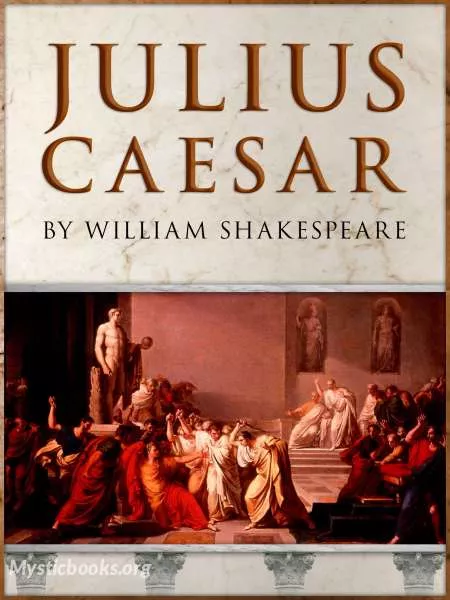
Julius Caesar
'Julius Caesar' Summary
The play opens with two tribunes discovering the commoners of Rome celebrating Julius Caesar's triumphant return from defeating the sons of his military rival, Pompey. The tribunes, insulting the crowd for their change in loyalty from Pompey to Caesar, attempt to end the festivities and break up the commoners, who return the insults. During the feast of Lupercal, Caesar holds a victory parade and a soothsayer warns him to "Beware the ides of March", which he ignores. Meanwhile, Cassius attempts to convince Brutus to join his conspiracy to kill Caesar. Although Brutus, friendly towards Caesar, is hesitant to kill him, he agrees that Caesar may be abusing his power. They then hear from Casca that Mark Antony has offered Caesar the crown of Rome three times and that each time Caesar refused it with increasing reluctance, in hopes that the crowd watching the exchange would beg him to accept the crown, yet the crowd applauded Caesar for denying the crown, upsetting Caesar, due to his wanting to accept the crown. On the eve of the ides of March, the conspirators meet and reveal that they have forged letters of support from the Roman people to tempt Brutus into joining. Brutus reads the letters and, after much moral debate, decides to join the conspiracy, thinking that Caesar should be killed to prevent him from doing anything against the people of Rome if he were ever to be crowned.
Book Details
Language
EnglishOriginal Language
EnglishPublished In
1599Authors

William Shakespeare
United Kingdom
William Shakespeare was born on April 23, 1564, in Stratford-upon-Avon. The son of John Shakespeare and Mary Arden, he was probably educated at the King Edward VI Grammar School in Stratford, where he...
Books by William ShakespeareDownload eBooks
Listen/Download Audiobook
Related books

Comte de Monte-Cristo by Alexandre Dumas
Edmond Dantès, a young seaman with a promising future, is arrested at his wedding ceremony under calomnious charges, and locked up in the Chateau d'If...

Chronicles of Crime Vol 2 by Camden Pelham
Chronicles of Crime Vol 2 is a comprehensive collection of criminal cases from 18th and 19th century Britain, compiled by Camden Pelham, a barrister-a...

Story of the Armada by Amice MacDonell
This historical novel recounts the events leading up to and including the Spanish Armada's attempt to invade England in 1588. It portrays Queen Eliza...

Fat and the Thin, Book Three of Rougon-Macquart Cycle by Emile Zola
Florent, an escaped political prisoner, finds shelter with his half-brother Quenu, and his wife Lisa Quenu, in the bustling Les Halles markets of Pari...

History of Burke and Hare, And of the Resurrectionist Times by George MacGregor
This book dives into the dark history of the Resurrectionist movement, a time when corpses were illegally exhumed and sold to anatomy schools for diss...

Chronicles of crime and criminals No.1 by Anonymous
This book, published in 1888, provides a detailed account of two infamous murder cases that occurred in London during the Victorian era: the murder of...

Ποίος ήτον ο φονεύς του αδελφού μου by Georgios Vizyinos
This poignant novel explores the complexities of human emotions in the face of tragedy. It follows a young man searching for his brother's murderer, e...

Chronicles of Canada Volume 15 - The War Chief of the Ottawas: A Chronicle of the Pontiac War by Thomas Guthrie Marquis
This is the history of Pontiac's Conspiracy, 1763-1765. It includes the siege of Detroit and his ultimate defeat.

Electra (Storr Translation) by Sophocles
Sophocles' Electra is a classic Greek tragedy that explores themes of revenge, family, and justice. The play centers on Electra, the daughter of Agame...

Savrola by Winston S. Churchill
Savrola is a novel set in the fictional European nation of Laurania, where the dictatorial president Antonia Molara rules with an iron fist. The story...
Reviews for Julius Caesar
No reviews posted or approved, yet...